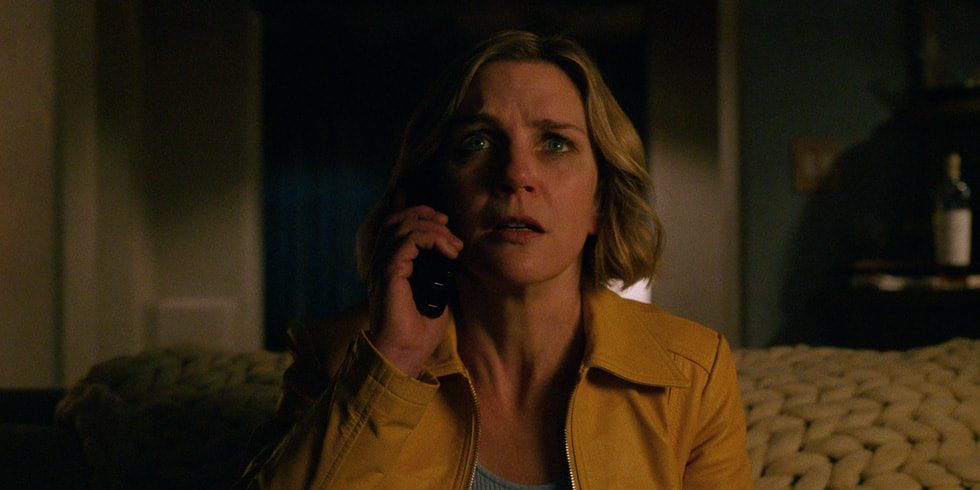In Apple TV+’s ‘Pluribus,’ Vince Gilligan conceives a weird world where everyone has turned into the nicest version of themselves. Rhea Seehorn’s Carol Sturka is one of the handful of people who have not been affected by this affliction. And now, being one of the only, if not the only, miserable people on Planet Earth, she wants to reverse the effects of the happiness virus and get the world back to the way it was. Over the course of the season, the show takes her on a wild journey that also leads her to realise some very important things about herself. In all of it, the title of the show is justified by the wild premise that presents a very different side of the world. SPOILERS AHEAD.
The Title Refers to an Important Latin Phrase
Making a show such as ‘Pluribus’ is a challenge in itself, but choosing a title that aptly represents it, without giving much away, is another struggle indeed. The show’s creator, Vince Gilligan, revealed that choosing a title was one of the hardest decisions about the show. The process of settling on a title took much longer than expected, as he and his team of writers spent numerous hours trying to determine what to call their creation. The word “pluribus” was suggested early on, but at the time, Gilligan thought that they needed something else. Two years later, and after considering over a hundred titles, when he came back to “pluribus,” he realised that it had been a perfect title all along, and he wondered why he didn’t settle on it earlier.

There are several reasons that make “pluribus” a perfect title for the series, but the most important one, perhaps, is how it encapsulates the soul of the story. Gilligan revealed that it is borrowed from the Latin phrase, “E Pluribus Unum,” meaning “out of many, one,” which appears on American currency and was an unofficial motto for the country. It refers to the union of the thirteen original colonies, which formed the United States. Choosing “pluribus” as the title for his show was a nod towards the phrase, but Gilligan didn’t want it to limit the story’s scope to America. He wanted the idea of many people coming together as a representation of the whole world, rather than just one country, and this intention becomes more evident as the true scale of the story unfolds.
The Meaning of Pluribus Goes Much Deeper Than the Hive Mind
‘Pluribus’ begins with the union of almost the entire world. At the end of the first episode, Carol discovers that the whole world has been infected by an alien virus, or something like that, which has turned people into their nicest versions. However, it has also given them a hive mind, which means that every single person, or at least the ones under the influence of the virus, now shares the consciousness of every other person. This means that everyone knows and feels the same thing, and while they have individual bodies, they are one and the same. Thus, the world “pluribus” refers to the many who have now become one and have created a sense of utopia for humanity.

What makes the choice of “pluribus” as the title more interesting is that it seems to refer to everyone else but the lead character, who is not a part of the many who have become one. She is an anomaly, a mistake that the others feel needs to be corrected, which is why they are eager to solve the problem and make her, and eleven other people in the world, like them. Thus, the choice of title almost makes it feel like the people are the real heroes of the story, while Carol is the villain who seems intent on breaking their union and reducing them from one back to many. But the same train of thought also leads us to what the show is actually about. While the union of minds makes it seem like humanity has been rid of all its flaws, and being one gives it the utopia it had always wanted, things aren’t exactly so.
As Carol points out, it is the differences that make them human, even if they are miserable because of it. Their individuality and their freedom of choice, even if it means choosing to be an unlikable person, are what make them human, and the alien virus strips them of all of it, reducing them to something entirely outside of their human nature. This means that the “pluribus” in the title actually refers to this sense of many with respect to humans. Instead of pointing towards the hive-mindedness of the alien virus, the title refers to the diverse experience of humanity, the vastness of human nature, where differences are something to be accepted rather than being looked down upon. This is what Carol is fighting to protect; this is the true meaning of being human. This context lends a deeper meaning to the title, making it a perfect representation of the show’s core.
Read More: Who is Koumba Diabate? Who Plays Him in Pluribus?


You must be logged in to post a comment.